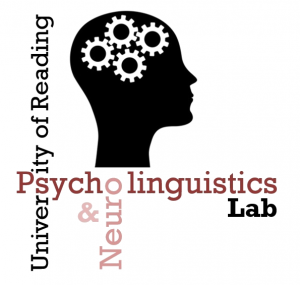Memory retrieval and sentence interpretation during language processing (2015-2017)
Ian Cunnings and Patrick Sturt (University of Edinburgh)
British Academy/Leverhulme Trust Small Research Grant
This British Academy/Leverhulme funded project, conducted in collaboration with Dr Patrick Sturt at the University of Edinburgh, investigated how the phenomenon of similarity-based interference influences sentence comprehension. Previous psycholinguistic research has shown that readers sometimes perceive ungrammatical sentences such as ‘The key to the cabinets were rusty’ as being grammatical (the verb should be ‘was’ rather than ‘were’). Here, the form of the verb (‘were’) should ‘agree’ in number with the sentence subject (‘the key’) but instead agrees in number with the intervening noun ‘the cabinets’. One account of this finding is that this intervening noun ‘interferes’ with the computation of subject-verb agreement, causing a so-called illusion of grammaticality.
Although many studies have examined how such interference influences perception of sentence grammaticality, less research had examined how it may influence sentence interpretation. In a series of studies that manipulated sentence plausibility rather than grammaticality, we investigated how interference influences sentence interpretation. For example, the sentence ‘Sue saw the letter that the butler with the cup accidently shattered in the dining room’ is technically implausible, as one cannot shatter a letter, but may be perceived as being plausible due to interference from the intervening noun ‘the cup’. The results from this project indicated illusions of plausibility similar to previously reported illusions of grammaticality, suggesting similarity-based interference is a general property of language comprehension.
Related Publications
Cunnings, I. & Sturt, P. (2023). Illusions of plausibility in adjuncts and co-ordination. Language, Cognition and Neuroscience, 38, 1318-1337.
Cunnings, I. and Sturt, P. (2018). Retrieval interference and semantic interpretation. Journal of Memory and Language, 102, 16-27.

